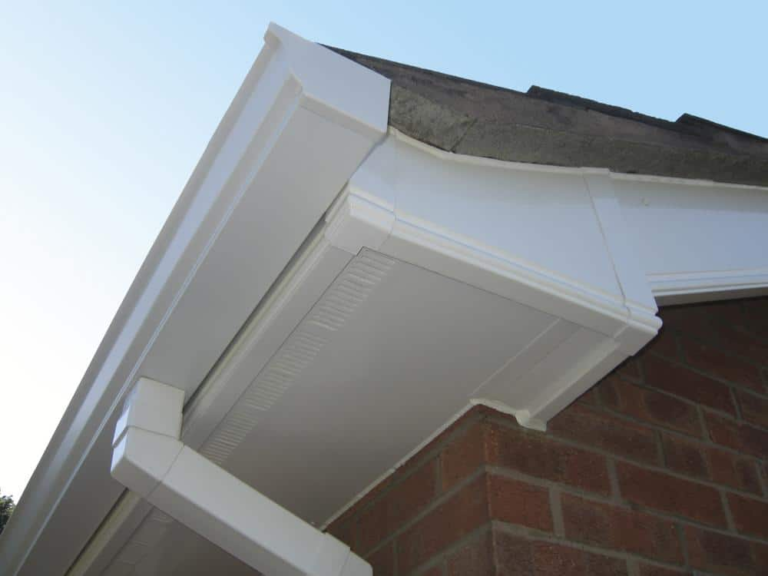What's The Current Job Market For Fascia Board Repair Professionals Li…
페이지 정보
작성자 Georgiana Borri… 작성일25-07-20 15:27 조회4회 댓글0건관련링크
본문
Fascia Board Repair: A Comprehensive Guide
Fascia boards play an essential role in the structural integrity of a home. They are the long, straight boards that run along the lower edge of the roof; they serve both practical and aesthetic functions. Gradually, fascia boards can experience damage due to the elements, bugs, or bad drainage systems. This short article aims to offer a thorough understanding of Fascia Board Repair - click the following webpage,, detailing vital details on recognizing damage, repair techniques, and maintenance ideas for homeowners.

Comprehending Fascia Boards
Fascia boards are generally made from wood, vinyl, or aluminum. Their primary function is to support the bottom row of roof shingles and hide the rafters, therefore offering a tidy and finished aim to the roofline. Additionally, fascia boards also play a vital role in securing your home from water damage by helping to direct rainwater far from your house through seamless gutters.
Why Repair Fascia Boards?
Harmed fascia boards can result in a multitude of problems, including:
- Water damage: Allowing moisture to permeate the roofing structure, leading to mold and structural decay.
- Pest intrusions: Damage can provide entry points for bugs like squirrels or insects.
- Visual concerns: Cracked, warped, or peeling fascia can interfere with a home's curb appeal.
Identifying Damage
Before continuing with repairs, it is crucial to identify the condition of your fascia boards. Some common signs of damage consist of:
- Rotting wood: Often resulting from prolonged direct exposure to moisture.
- Peeling paint: Indicates wetness intrusion or insufficient sealing.
- Cracks or divides: Can happen due to thermal expansion or extreme weather conditions.
- Drooping or dislodged boards: May be a sign of structural concerns or bugs.
Table 1: Common Fascia Board Damage Types
| Damage Type | Description | Trigger |
|---|---|---|
| Decomposing | Soft, spongy texture | Prolonged moisture direct exposure |
| Peeling Paint | Flaking or blistering paint | Moisture seepage |
| Cracks | Visible cracks | Thermal growth |
| Drooping | Board is not aligned appropriately | Structural damage |
| Bugs | Holes or tunnels in the board | Entry by rodents/insects |
Fascia Board Repair Techniques
Fixing fascia boards includes several approaches based upon the type and level of damage. Below are reliable methods for fascia board repair.
1. Minor Damage: DIY Repair
For minor damages, homeowners can typically handle repairs with standard tools.
Products Needed:
- Wood filler or epoxy
- Paint or sealant
- Sandpaper
- Putty knife
- Primer (if repainting)
Steps:
- Assess Damage: Identify the degree of damage and identify if the entire board needs replacement or if repairs suffice.
- Tidy Area: Remove any debris or loose paint.
- Fill Gaps: Apply wood filler or epoxy to fractures or holes using a putty knife.
- Sand Smooth: Once dry, sand the fixed area to produce a smooth surface area.
- Paint/Seal: Apply primer and paint to match the fascia.
2. Considerable Damage: Board Replacement
If a fascia board is seriously harmed, a total replacement may be required.
Products Needed:
- New fascia board (wood, vinyl, or aluminum)
- Nails or screws
- Hammer or drill
- Safety goggles and gloves
- Primer and paint (if wooden)
Steps:
- Remove Damaged Board: Carefully take out the damaged fascia using a lever or saw, guaranteeing not to disturb surrounding materials.
- Procedure and Cut: Measure the new board to the exact same length as the old one and cut appropriately.
- Attach New Board: Position the new fascia board and protect it with nails or screws, ensuring it is flush against the roofline.
- Complete: Paint or seal the new board to secure against wetness.
3. Professional Help
For substantial damage or house owner unpredictability, working with a professional contractor may be the very best choice. A certified contractor can examine the circumstance precisely and guarantee that any repairs or replacements are up to industry requirements.
Maintenance Tips for Fascia Boards
To extend the life of fascia boards and avoid future damage, consider the following maintenance pointers:
- Regular Inspection: Check fascia boards at least when a year for indications of damage.
- Tidy Gutters: Ensure gutters are routinely cleaned up to prevent water from pooling or overruning onto fascia boards.
- Seal and Paint: Apply sealant or paint every couple of years to protect wooden fascia boards from moisture.
- Trim Overhanging Branches: Prevent physical damages from falling branches by keeping surrounding trees trimmed.
Frequently asked question Section
Q1: How typically must I examine my fascia boards?A1: It is suggested to
check your fascia boards a minimum of once a year, especially after heavy storms or seasonal changes. Q2: Can I paint over peeling fascia?A2: Peeling
paint needs to be removed, the area should be sanded, and any underlying damage needs to be attended to before repainting. Q3: Is it needed to replace the whole fascia board if it's damaged?A3: Not necessarily; minor damage can typically be fixed with filler, but comprehensive damage might necessitate replacement. Q4:
What materials are the very best options for fascia boards?A4: Wood is traditional and aesthetically pleasing; however, vinyl and aluminum are more resilientand resistant to rot and insects. Fascia board repair is a necessary aspect of home maintenance that substantially impacts the total health of the roofing and structure. By identifying damage early, utilizing reliable repair strategies, and sticking to maintenance pointers, property owners can safeguard their property from expensive repairs in the future. Whether opting for DIY techniques or seeking professional aid, understanding the importance of fascia boards and their maintenance is essential for any property owner.
댓글목록
등록된 댓글이 없습니다.

